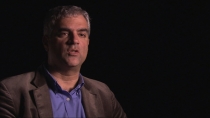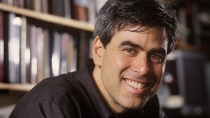Shelley Taylor Ph.D.
Dr. Taylor is a Distinguished Professor of Psychology. She studies social relationships and how they protect people against stress. Her tend-and-befriend model, which was developed in response to the fight-or-flight metaphor that usually guides stress research, builds on the fact that, in response to stress, people come together with others for joint protection of self and offspring.
Dr. Taylor also studies self-regulation, stress, and coping, and explores the skills that people develop and use for anticipating stressful events and for minimizing their adverse effects when...
Senia Maymin, MAPP
Senia Maymin is a Ph.D. candidate at the Stanford Graduate School of Business, and studies how people can make lasting change and create new habits.
Senia Maymin is the Publisher and Editor-in-Chief of PositivePsychologyNews.com (PPND), a daily news site of research-based happiness with over 60 authors and in four languages. When people want to learn the latest in cutting-edge research related to happiness, success, and productivity, they go to PositivePsychologyNews.com. Senia Maymin is an executive coach and runs the PPND coaches network: PositivePsychologyNews.com/coaching.
Senia Maymin has...
Peter Whybrow, M.D.
Dr. Whybrow is the Director of the Semel Institute for Neuroscience and Human Behavior. He is an international authority on the neuroscience of emotion, manic-depressive disease, and the effects of thyroid hormone on brain and human behavior. He is the author of numerous scientific papers and six books, including A Mood Apart: The Thinker’s Guide to Emotion and Its Disorder, which has been translated into several languages and is widely acclaimed as the definitive guide to the experience and science of mood disorder written expressly...
Nicholas A. Christakis M.D, Ph.D.
Dr. Christakis is a Professor of Medical Sociology, Sociology, and Medicine. He has spent the last ten years studying social networks. His research focuses on questions like: Why do humans form social networks? What do social networks mean for our lives? How, exactly, do they work? He has studied the mathematical, social, and genetic determinants of social network structure. In addition, he has investigated how things as diverse as obesity, happiness, and altruism flow across network ties, spreading far and wide across the intricately...
Jonathan Haidt, Ph.D.
Dr. Haidt is a Social and Cultural Psychologist. He received his Ph.D. from the University of Pennsylvania in 1992 and then did postdoctoral research at the University of Chicago and in Orissa, India. He has been on the faculty of the University of Virginia since 1995. His research focuses on morality – its emotional foundations, cultural variations, and developmental course. He began his career studying the negative moral emotions, such as disgust, shame, and vengeance, but then moved on to the understudied positive moral...
Ed Diener, Ph.D.
Dr. Diener is the Joseph R. Smiley Distinguished Professor of Psychology at the University of Illinois at Urbana-Champaign and a Senior Scientist for the Gallup Organization. His research focuses on developing theories of well-being and on its measurement from different angles: How do temperament, income, and personality influence well-being?
He received his doctorate at the University of Washington in 1974, and has been a faculty member at the University of Illinois for the past 35 years. He was the president of both the International Society...
Dacher Keltner Ph.D.
Dr. Keltner is a Professor of Psychology and the Director of Greater Good Science Center. He received his Ph.D. in Social Psychology from Stanford University in 1989. In 1992, after completing a postdoctorate at UCSF with Paul Ekman, he took his first academic job, at the University of Wisconsin-Madison. He then returned to Berkeley’s Psychology Department in 1996, where he is now a full professor.
Dr. Keltner’s research focuses on two time-honored questions: A first is the biological and evolutionary origins of human goodness, with...
Christopher Peterson Ph.D.
Dr. Peterson has been at the University of Michigan since 1986. He conducts research on positive psychology: what makes life most worth living? His special focus is on strengths of character and positive traits like curiosity, hope, kindness, and teamwork that are associated with the life well lived. He is increasingly turning his attention to deliberate programs that encourage good character. He is the author of A Primer in Positive Psychology and a coeditor of the journal Applied Psychology: Health and Well-Being.
Dr. Peterson received his doctorate in...







